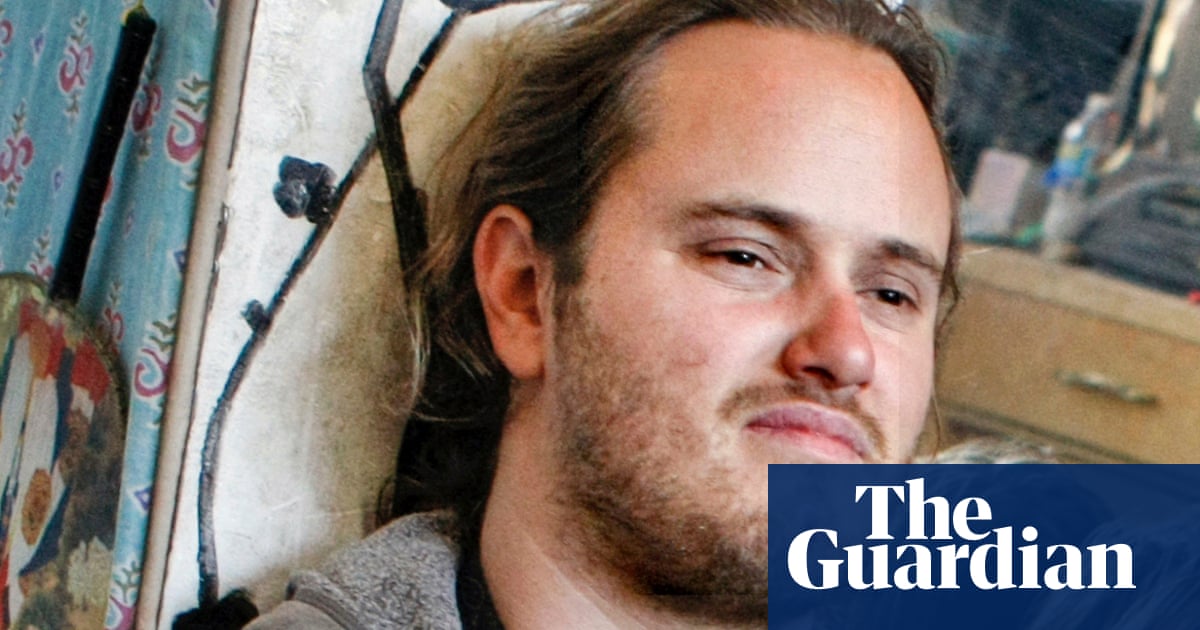State charges included kidnapping, first-degree burglary and false imprisonment of husband of Nancy Pelosi
The man who was sentenced to 30 years in federal prison for attacking the husband of Nancy Pelosi with a hammer in their California home was sentenced on Tuesday to life in prison without the possibility of parole following a separate state trial.
A San Francisco jury in June found David DePape guilty of charges including aggravated kidnapping, first-degree burglary and false imprisonment of an elder.
Before issuing the sentence, Judge Harry Dorfman dismissed arguments from DePape’s attorneys that he be granted a new trial for the 2022 attack against Paul Pelosi, who was 82 years old at the time.
“It’s my intention that Mr DePape will never get out of prison, he can never be paroled,” Dorfman said while handing out the punishment.



Thank you, and yeah some of that post was a little shaky, I didn’t proofread it much.
I disagree that it’s not possible to punish someone unless they are beneath you. Firstly, a group could punish someone who is equal to any given member of the group. But mostly, I think your definition of dehumanization might be too strict, although your argument is consistent if I take that definition to be true. To consider someone punishable, they do generally need to be beneath you in some sort of power structure, but that doesn’t make them less than human. Is a child less human than a parent? A boss more human than an employee? A follower less human than a leader? You can easily advocate for universal human rights and general equality while creating punishments for those who violate the peace or cross moral lines. Someone who is punished isn’t given that punishment because they’re less than human, they’re given that punishment because they did something wrong-- a rule that applies to every human equally. To allow them to violate the social order and harm others without consequences would in fact put them higher on a hierarchy than everyone else, and by your logic dehumanize everyone else!
Everyone has the capacity for both good and evil, but some people consistently choose one over the other. I believe someone who consistently chooses to be evil can be usefully categorized as an “evil person”, even though they can change. And we should give them as much of an opportunity to change as we can. But if that doesn’t work, are we to allow them to continue to do evil in hopes that they’ll turn good eventually?
I meant on a more personal level, we should have less tolerance for behavior that’s unfair, deceptive, malicious, etc. Social enforcement is powerful but people are reluctant to do it (and understandably so).
I try not to concern myself with what categories my personal beliefs fall into because I think that limits the way in which you can think about things. I wouldn’t categorize myself as an authoritarian but I’m sure I have some views that go towards that territory. I don’t consider a passing similarity to concepts used for bad purposes to be damning, though. If it’s bad in the context of my usage, it will be apparent without the need to compare it to existing systems of thought. That sounds a bit conceited but mostly it’s that I want to avoid arguing about beliefs that I don’t hold that are seen as related to the ones that I do hold in some way.
Yes, protecting people is always the first priority, otherwise there just wouldn’t be a justice system. That doesn’t mean punishing people for wrongdoings.
Yes, I think hierarchy is bad in general, it defines people as not equal. You can’t have a hierarchy of equal members. It has lead to those higher up thinking the laws for us don’t fully apply to them, either because we’re less than human or because they’re more than human. Even the hierarchy of parents has turned children into property instead of, again, people who need help. It might even be why people are more tolerant of shitty behavior, because they don’t feel high up enough in the hierarchy to be able to do anything about it.
Part of the critique of that phrase is its seeming dismissal of context and nuance. Authoritarianism isn’t really a system of thought, but even without mentioning that, you’re going to have a tough time drawing hard lines around behavior without infringing on valid personal freedoms. Though, in general, seeing how your beliefs map onto different ideas is a good way to interrogate yourself and try to determine if you should keep that belief as is. If an idea of yours seems to tie in with a system of thought you’re opposed to, maybe ask yourself why that is and what aspects you identify with versus the aspects you can do without.
I don’t really have much more to say on this subject but I appreciate your responses, they’re well thought out and helpful for thinking about these subjects.